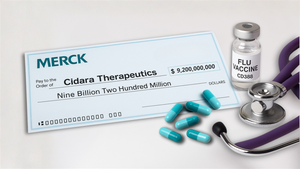(BPT) - Your heart beats about 100,000 times daily, bringing oxygen and nutrients to every cell to keep your body working its best. Just as an engine keeps a car moving, your heart is the driving force that keeps your body healthy and active. And, much like you'd maintain your car's engine, healthy habits are vital to keeping your heart functioning properly and preventing heart disease - the leading cause of death in the United States.
What is Coronary Artery Disease?

The most common type of heart disease is coronary artery disease (CAD), a condition where plaque builds up in the heart's arteries and decreases blood flow. According to the U.S. Centers for Disease Control and Prevention (CDC), roughly 21 million American adults have CAD. CAD is known as the "silent killer," meaning it can progress slowly in patients with no symptoms until it causes a heart attack or other complications.
Ginger Bierdeman, 58 years old, a nurse, avid football fan, and doting aunt, knew she was at greater risk of CAD because of her family history after losing her father to a heart attack. She enrolled in a heart health program through her local hospital and received a standard coronary CT scan of her heart (also known as CCTA). The technology - which studies multiple variables that the human eye can easily miss - uses AI to analyze X-rays to build a 3D model of the heart highlighting areas where CAD is present. The analysis identified areas of concern, specifically a build-up of plaque, which helped her doctor develop her personalized treatment plan. Using what she learned from this analysis, Ginger has started choosing healthier meals, exercising regularly, and taking prescribed medications from her doctor. Now she encourages all her family and friends to get screened so they can also see the full picture of their heart health.
"I think it's important for everyone to take control of their health," said Ginger. "If you do have a history of family heart disease, it is especially important that you get all the information you need to make good decisions for your life and lifestyle."
How do I get screened?

February is American Heart Month, making it the perfect time to take the first step toward improving your heart health. Talk to your doctor about your screening options. In the past, tests to diagnose CAD were often limited to ones that were invasive or not precise enough, which meant extra testing could be required to confirm disease severity and treatment options. One of these, called stress tests, are not always accurate and cannot assess plaque buildup.
Fortunately, newer technologies have become available that allow doctors to detect issues earlier, diagnose CAD more accurately, and develop customized treatment plans that help slow the progression of the disease. CCTA is the #1 test recommended in guidelines by the American Heart Association and the American College of Cardiology. HeartFlow Analysis is an AI-powered technology applied after a CCTA test that creates a color-coded 3D model of the heart's arteries showing the impact of plaque, narrowings and blockages. This enables your doctor to better understand the potential effect on blood flow to your heart - information that otherwise would only be available with a riskier, more invasive procedure.
"Advancements in diagnostic technology are making it easier for us to uncover heart issues before they become life-threatening," said Malissa Wood, MD, Vice President and Chief Physician Executive at Lee Health Heart Institute. "If you have a family history of heart disease, are experiencing symptoms, or want to have a better understanding of your heart health, talk to your doctor about your options."
To learn more about HeartFlow Analysis, go to: https://www.heartflow.com/learn.






